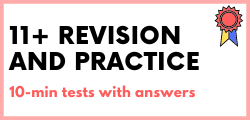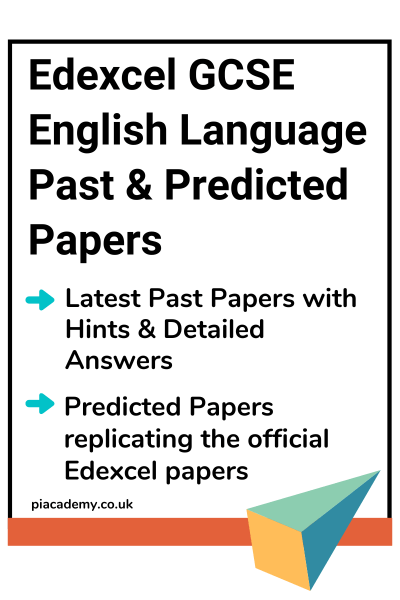Introduction
GCSEs, or General Certificate of Secondary Education, are pivotal points in every student's academic journey. Understanding what GCSE stands for and the significance of these exams is crucial for students and parents alike. In this guide, we'll explore the ins and outs of GCSEs, providing essential information to help students navigate through this important phase of their education.
What Does GCSE Stand For?
GCSE stands for General Certificate of Secondary Education. Introduced in the late 1980s in the UK, these exams were a significant development in the education system. Typically taken in Year 10 or Year 11, GCSE aims to provide a fair and consistent evaluation of student's academic progress as they complete their compulsory education.
Before GCSEs, students sat for separate GCE O-Level and CSE exams, which had distinct limitations. The GCE O-Level exams were often seen as more academically focused, while the CSE exams were perceived as less rigorous. The introduction of GCSEs marked a shift towards a more inclusive and comprehensive approach to secondary education. It allowed students of varying abilities to pursue a wide range of subjects under a unified examination system, ensuring that their achievements were recognised and valued equally. This change not only simplified the assessment process but also provided students with greater opportunities to excel and progress in their educational journey.
Structure of GCSE Exams
GCSE exams encompass a diverse array of subjects, reflecting the broad spectrum of knowledge and skills required for a well-rounded education. These subjects commonly include
English: The English GCSE encompasses both language and literature components. In the language aspect, students are tested on their ability to communicate effectively through written and spoken language, demonstrating proficiency in areas such as comprehension, analysis, and creative writing. The literature component involves the study of literary texts, where students explore themes, characters, and literary techniques, honing their critical thinking and analytical skills.
Mathematics: The Mathematics GCSE assesses students' mathematical abilities across various areas, including algebra, geometry, statistics, and calculus. Students are tasked with solving mathematical problems, applying mathematical concepts to real-world scenarios, and demonstrating logical reasoning and problem-solving skills.
Sciences: The Sciences GCSE typically covers Biology, Chemistry, and Physics. Students study fundamental concepts in each discipline, exploring topics such as cellular biology, chemical reactions, and forces. Practical experiments are an integral part of the curriculum, allowing students to develop investigative skills and apply scientific principles in laboratory settings.
Humanities: Humanities subjects like History, Geography, and Religious Studies encourage students to explore the complexities of human societies, cultures, and belief systems. In History, students examine historical events, analyze historical sources, and develop skills in interpretation and argumentation. Geography focuses on the physical and human aspects of the Earth, fostering skills in map reading, data analysis, and environmental understanding. Religious Studies delves into the study of religions, ethics, and philosophical perspectives, promoting critical thinking and tolerance towards diverse beliefs.
Languages: Modern Languages GCSEs, such as French, German, and Spanish, equip students with linguistic proficiency and cultural awareness. Students develop skills in listening, speaking, reading, and writing in the target language, while also gaining insights into the customs, traditions, and literature of the respective cultures. The ability to communicate effectively in a foreign language enhances intercultural competence and opens doors to global opportunities in education, travel, and employment.
In 2017, the grading system for GCSEs underwent a significant overhaul. The traditional A* to G grading scale was replaced with a numerical scale from 9 to 1, with 9 being the highest grade achievable. This change was implemented to provide greater differentiation between student achievement and to align GCSE grading more closely with international standards. The introduction of the numerical grading system aimed to offer a clearer indication of students' performance, enabling universities, colleges, and employers to make more informed decisions regarding admissions and employment. While the transition to the new grading system may initially have caused some uncertainty, it ultimately provides a fairer and more transparent assessment of students' abilities, ensuring that their achievements are accurately recognised and rewarded.
Importance of GCSEs
GCSEs hold immense significance in determining students' future academic and career trajectories. Recognised by universities, colleges, and employers alike, these exams serve as a crucial benchmark for assessing students' academic capabilities and readiness for higher education or employment.
Achieving good GCSE grades is essential for unlocking a multitude of opportunities in further education. For instance, high GCSE grades are often a prerequisite for entry into A-Level programmes, which form the foundation for advanced study in specific subjects. Additionally, vocational qualifications, such as BTECs and NVQs, may require certain GCSE grades for admission, providing alternative pathways for students interested in practical, hands-on learning.
Furthermore, GCSEs play a pivotal role in enhancing students' employability prospects. Many employers consider GCSE grades as indicators of candidates' diligence, commitment, and aptitude for learning. Strong GCSE results can set students apart in a competitive job market, demonstrating their academic proficiency and dedication to excellence.
Moreover, GCSEs offer students the opportunity to explore different subjects and discover their strengths and interests. By excelling in particular subjects, students may uncover potential career paths or areas of study that align with their passions and talents, guiding their educational and career choices in the future.
Preparation for GCSE Exams
Effective preparation is fundamental to achieving success in GCSE exams. To maximize their chances of performing well, students must establish a structured study routine that allows for thorough revision and practice. Creating a study timetable can help students manage their time effectively, allocating dedicated slots for revising each subject and completing practice exams.
Revision plays a vital role in consolidating students' understanding of key concepts and topics covered in their GCSE syllabus. It's essential for students to revisit class notes, textbooks, and supplementary materials to reinforce their knowledge. Moreover, using revision guides tailored to specific exam boards can provide concise summaries and exam-style questions, aiding in targeted revision.
In addition to traditional study methods, students can benefit from supplementary resources such as PiAcademy, which provides a range of educational materials tailored to GCSE students. PiAcademy offers resources spanning various subjects, including Mathematics, Biology, English, and Languages. These resources are designed to complement students' studies and enhance their understanding of key concepts, exam techniques, and subject-specific skills. By incorporating PiAcademy resources into their revision strategy, students can bolster their preparation and increase their chances of success in GCSE exams.
Managing Exam Stress
GCSE exams are undoubtedly a stressful time for students, but there are effective strategies to cope with the pressure. Encouraging students to take regular breaks, maintain a healthy lifestyle, and practice relaxation techniques can help alleviate stress. Taking short breaks during study sessions allows students to rest and recharge, preventing burnout and improving productivity.
Additionally, prioritizing sleep, nutrition, and exercise is essential for students' physical and mental well-being, providing them with the energy and resilience needed to tackle exam challenges. Practicing relaxation techniques such as deep breathing or mindfulness can help students calm their minds and alleviate anxiety, improving their ability to concentrate during study sessions and exams.
Lastly, communicating concerns with teachers and parents allows students to access additional support and guidance, fostering a supportive environment during this demanding period. By implementing these strategies, students can effectively manage exam stress and approach their GCSE exams with confidence and resilience.
Post-GCSE Options
After completing their GCSEs, students are presented with a myriad of options for their future education and career paths. They can choose to pursue A-Levels, which provide specialized and in-depth study in subjects of interest, or opt for vocational qualifications like BTECs or NVQs, focusing on practical skills and industry-specific knowledge.
Alternatively, apprenticeships offer a combination of on-the-job training and classroom learning, allowing students to earn a salary while gaining valuable work experience. For those keen to enter the workforce immediately, there are opportunities for employment in various sectors, providing valuable work experience and exploration of different career paths.
Each pathway offers unique opportunities for personal and professional development, and students need to research and explore their options thoroughly to make informed decisions about their future.
Conclusion
In conclusion, understanding what GCSE stands for and the significance of these exams is essential for students embarking on their educational journey. By preparing diligently, managing exam stress, and exploring post-GCSE options, students can maximize their potential and pave the way for future success. With determination and perseverance, every student can excel in their GCSE exams and take the next step towards achieving their goals.


















































